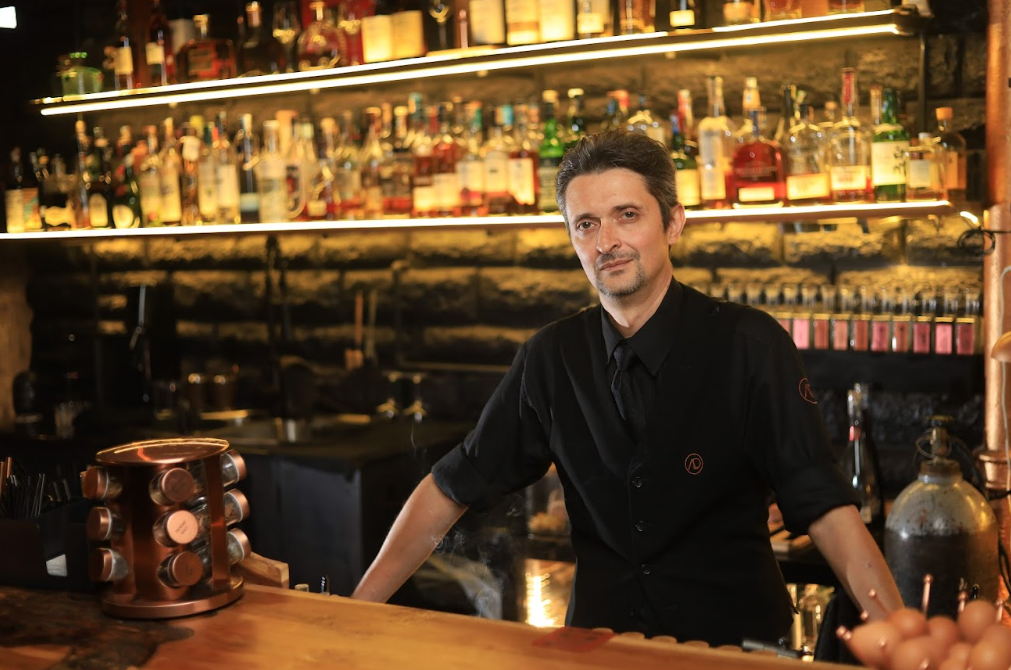Kenya’s cocktail scene is fast-developing, with Nairobi’s first official Bartender Week kicking off tomorrow. But when Anup Devani founded Revolver in 2019 it was “barely a thing”. db catches up with the clinical-geneticist-cocktail-maestro about the capital’s changing drinking culture.
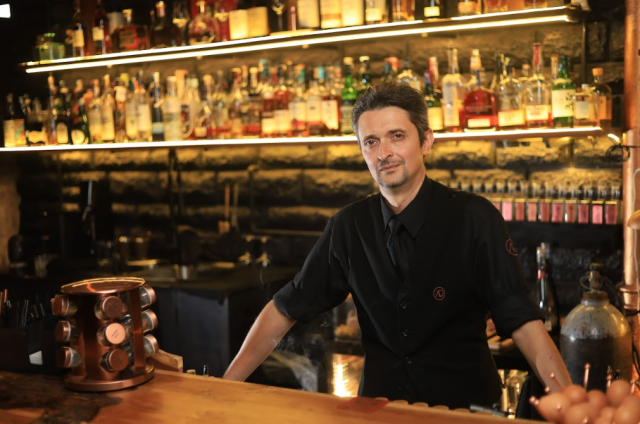
“I remember this one very strange day…” recalls Anup Devani.
“It was 2021. I was at my lab, sitting across the desk from a lady. She’s pregnant, and wants to make sure everything is fine with the baby.
“So there I was, doing genetic counseling with her, explaining all the things that were right or wrong. After I was done, I arrived at the restaurant-side at about 5pm, and she was sitting there with a friend. She looked at me, like, ‘why are you here? No, that’s really weird’”
And who can blame her? It’s not every day you find out your clinical geneticist also heads up a speakeasy bar in Nairobi.
The art of precision
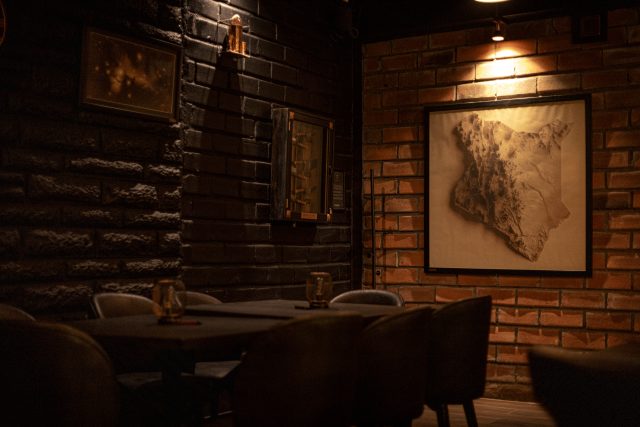 Anup Devani opened Revolver in 2019 with his wife and sister-in-law
Anup Devani opened Revolver in 2019 with his wife and sister-in-law
Days at the lab, nights spent mixing cocktails. It’s a double-life to make even Batman blush. But the jobs are more similar than first meets the eye: “I do like to be very precise,” says Devani. “Obviously creating a cocktail has a bit more artistry, but once the recipe is set, I like the specificity and accuracy of being able to remake that same drink over and over again and not suffer any disparities in quality each time. Understanding the liquids from a chemical perspective and also from that practical aspect, the two actually go together pretty well.”
Devani opened Revolver in 2019 with his wife (dentist) and sister-in-law (doctor). Aside from a week pulling pints at the University of Surrey, he’d never really worked in hospitality. Taking matters into his own hands, Devani honeymooned around the States with his wife, touring high-end establishments. Arriving back in Nairobi, he felt he had a pretty good grip of what made a great bar.
Recently penned by journalist Eddy Ashioya as “a boudoir with a 1920s gangland, bootlegger aesthetic”(Business Daily), luxury is the name of the game at Revolver. Its cocktail list ranges from modern, to ‘classic’ and ‘premium’, and covers one of the country’s most impressive selections of Scotch. A seasonal menu centres round a theme. Now, it takes guests on a trip round the world with global cocktails under ‘Provenance’, but previously ‘Rock n’ Roll’ drew inspiration from songs played at the bar.
From sweet serves to craft territory
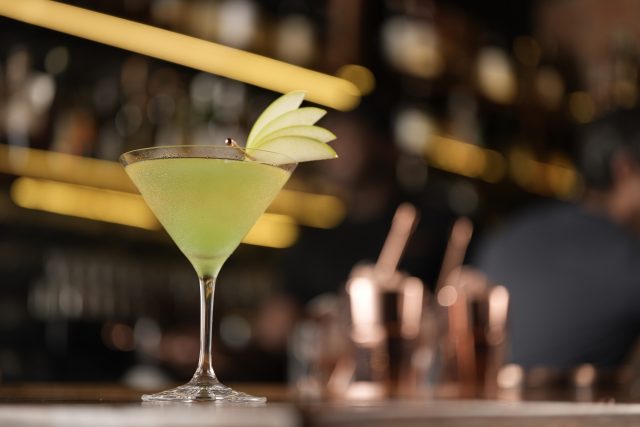 Kenya Bartender Week will take place from 2 to 8 September
Kenya Bartender Week will take place from 2 to 8 September
When Devani founded the bar, cocktail culture in Nairobi was “barely a thing”. He looks back: “It was all just very sweet, sugary, pink drinks.” Now, the bar scene’s fast-developing, with a burgeoning zeal for balanced cocktails and premium, local spirits.
Kenya Bartender Week, the first of its kind in the country, will run from 2 to 8 September this year for instance, spotlighting the upcoming talent in Nairobi’s cocktail scene, with the inaugural event launched at the stylish Hero Bar in Village Market. Devani is also a cocktail consultant, and judged the Kenyan arm of Diageo’s World Class Cocktail Competition in April. He was impressed by what he saw, with establishments like Jekyll and Hyde and Cultiva “pushing away from that sweet, sickly cocktail into legitimate craft territory.”
And then there’re the spirits producers, bagging awards up and down the country. “Every premium spirits manufacturer opened after we opened, so we’ve been part of the journey with every single one of them so far,” he says. There’s Procera Gin, Kenya’s first craft distillery, that uses a type of juniper indigenous the Ethiopian and Kenyan islands, gaining traction in the national and international market. Devani gestures to a sea of handcrafted bottles behind him: “They’ve done incredibly well for themselves.” Then there’s Bahari Rum, which uses Kenyan molasses and old rum aged in American casks. They make special editions for Devani, who in turn, helps train their staff.
Nairobi’s shifting drinking scene
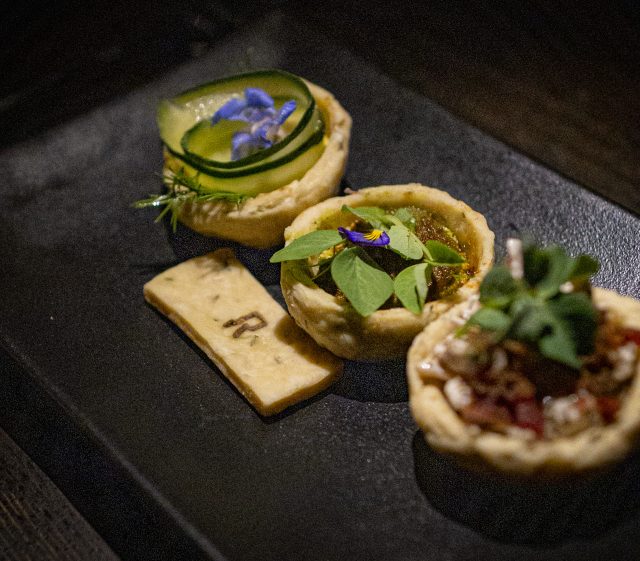 “We’re using alcohol to provide you with a wonderful, broad palette of flavour,” says Devani
“We’re using alcohol to provide you with a wonderful, broad palette of flavour,” says Devani
“Classically, there’s been a bit of a binge drinking culture here,” explains Devani. “You drink after work on a Thursday, and you don’t recover under Monday night, you just keep on going. But people are starting to get the hang of the idea that sometimes you can go out and have a good time without sacrificing your entire weekend for it. People want to drink less, but they want better quality.”
He charges a premium for shots, for instance. “Something we try to get across when people come here for the first time is, we’re not a means to an end to get drunk. We’re using alcohol to provide you with a wonderful, broad palette of flavour, which is something that alcohol does that very few things we eat or drink can.”
At first, Revolver, based in Nairobi’s affluent Spring Valley neighbourhood, was a honeypot for expats, well-versed in the practice of cocktail consumption. But after recent exposure in the press, there’s been an influx of locals through the doors. “They’re very appreciative”, comments Devani. When a guest comes to the bar, the experience is “always interactive”, he continues. Ever a scientist, Devani’s keen to iron out the specifics: “‘Do you like it a little sweeter? A little not?’ You like to get it right the first time round”.
And he’s always on the hunt for local ingredients, like tamarind and baobab, when outside of the capital. Produce, in Nairobi, can be “pretty run of the mill stuff”. But that’s just one challenge that comes with operating in Nairobi. Heavy taxation and ever-changing government policies are also issues. In July, a sweeping plan that proposed banning the purchasing of alcohol in restaurants, supermarkets and public transport across Kenya, sparked major backlash.
‘I make a brand new friend every night’
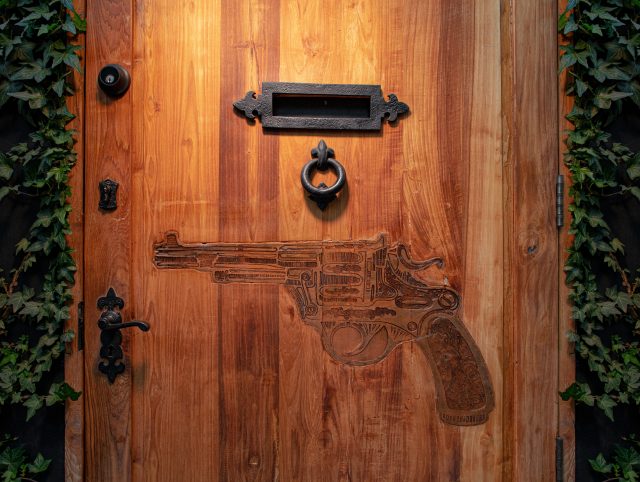 In Nairobi, Devani says people want to drink less, but are looking for better quality options
In Nairobi, Devani says people want to drink less, but are looking for better quality options
Revolver is also subject to a slew of inspections from various authorities. “Even though they know we’re well in line and doing everything the correct way, they’ll still come in and try and find something very minuscule then try and leverage that to make some money off of you. So the cost of doing business is more than what your top line says, unfortunately.”
Still, looking forward, Devani predicts that Nairobi will become a destination city. For the geneticist, all the best bars have a “deep, defined sense of identity”. It’s all about saying “this is what we are, this is what we do and this is how we do it, and it’s up to you to take it or leave it.”
But would he ever quit his day job? “Probably not,” he admits. “I’m pretty old. My joints hurt in the morning when I’ve had a long night here. As much as I can, I prefer to do both.”
Working in the lab requires a “professional detachment” in contrast to hospitality, where you can actually chat to people. Life’s all about duality: “I made one friend the entire time I was running my lab, and here, I make a brand new friend every night.”
Related news
The new London bar that’s an antidote to all things ‘capitalist, shiny and clean’
The fascinating history of five popular cocktails
Is the green agenda really worth it for Hong Kong’s bar scene?

